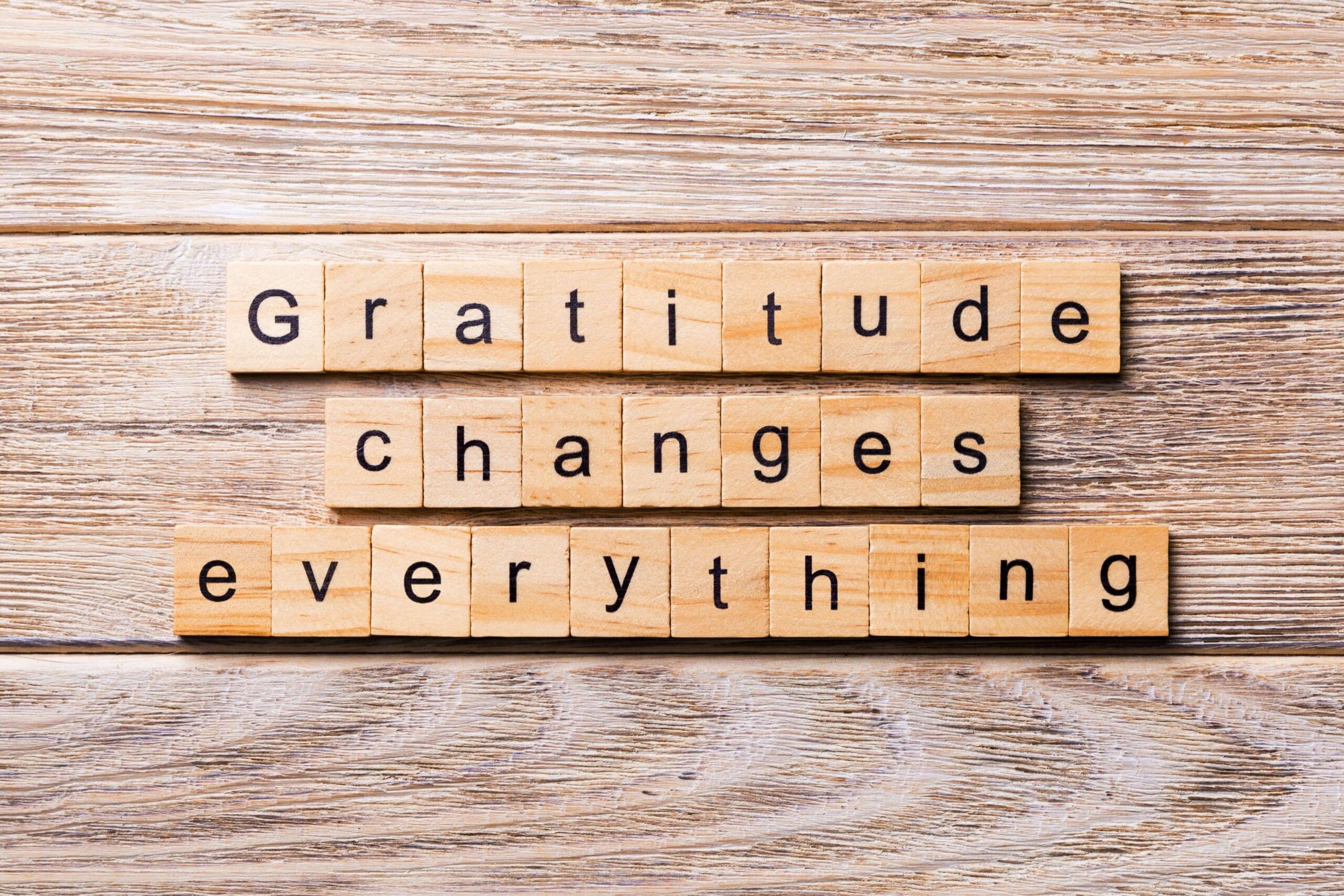Gratitude is more than just a warm feeling of thankfulness; it can be a fundamental force for transforming the journey toward sobriety.
What Makes Gratitude Transformative?
Gratitude is transformative because it can change our perspective, mindset, and well-being. The transformative impact on our lives can include:
- Psychological Change: Gratitude can shift our mindset from negativity, victimhood, or entitlement to positivity and appreciation. It encourages us to focus on what we have rather than what we lack, improving mental and emotional well-being. This shift in thinking can reduce symptoms of depression, anxiety, and stress.
- Better Attitude and Perspective: Gratitude also encourages us to see the world more optimistically. It enables us to find beauty and positivity in even the smallest things, helping us reframe challenges as opportunities for growth.
- Increased Resilience: Practicing gratitude helps build emotional resilience. It equips us with the tools to better cope with adversity, setbacks, and difficult circumstances. We can bounce back from challenges with greater strength by recognizing and appreciating the positive aspects of our lives.
- Enhanced Relationships: Gratitude fosters an atmosphere of kindness and appreciation. Expressing gratitude to others strengthens our interpersonal relationships, deepens connections, and promotes forgiveness. This transformation can lead to more fulfilling and harmonious relationships.
- Improved Physical Health: Research has shown that people who regularly practice gratitude experience physical health benefits, such as lower blood pressure, better sleep, and a more robust immune system.
- Motivation and Goal Achievement: Gratitude can motivate us to work toward our goals and aspirations. By acknowledging the support, resources, and opportunities we have, we are more likely to take proactive steps toward personal and professional growth.
- Generosity and Altruism: Gratitude often inspires a desire to give back to others. When people recognize the kindness and support they’ve received, they may become more inclined to help others in return. This transformation from a self-centered perspective to one of generosity and altruism can be gratifying.
How Can Gratitude Benefit Addiction Recovery?
Gratitude can also positively influence various aspects of addiction recovery. Here’s how.
Shifting Focus from Scarcity to Abundance: Addiction often thrives in a mindset of scarcity, where the addicted individual believes they need the substance or behavior to fill a void. Gratitude encourages a shift in focus from what one lacks to what they already have. This shift can be a profound revelation, helping individuals realize they possess a wealth of resources, support, and positive aspects.
Promoting Positive Thinking: Gratitude fosters a positive outlook on life. By acknowledging and appreciating the good things, no matter how small they may seem, individuals in recovery can create a more optimistic mindset. This positivity can be a powerful counterbalance to the negative thought patterns that often accompany addiction.
Reduces Stress and Anxiety: Gratitude has been shown to reduce stress and anxiety, two factors that can contribute to substance abuse and addiction. When individuals practice gratitude, it helps them manage their stress levels, making it easier to cope with the challenges of recovery.
Strengthens Relationships: Substance abuse often damages relationships with friends and family. Expressing gratitude and acknowledging the support received during recovery can help rebuild these connections. Gratitude strengthens interpersonal bonds and encourages forgiveness and healing.
Increases Resilience: Gratitude can enhance an individual’s resilience, enabling them to bounce back from setbacks and cravings more effectively. By focusing on the positives in their life, individuals can develop a greater capacity to overcome obstacles in their recovery journey.
How To Incorporate Gratitude Into The Addiction Recovery Process?
To harness the benefits of gratitude in addiction recovery, here are some practical ways individuals can incorporate this powerful emotion into their daily lives:
- Keep a Gratitude Journal: Start a journal to record things you’re grateful for each day. This practice can help you maintain a positive perspective and reflect on your progress in recovery.
- Express Gratitude to Others: A simple “thank you” can go a long way in strengthening your relationships. Firstly, it acknowledges the support and understanding of friends and family during the individual’s recovery journey. Secondly, expressing gratitude demonstrates humility and a willingness to make amends. Overall, a heartfelt “thank you” can be an invaluable tool for those seeking to overcome addiction and repair the connections that may have been damaged during their struggle with substance abuse.
- Practice Mindfulness: Mindfulness techniques can help you stay present and appreciate the small moments in life. Taking time to savor the simple joys can boost your overall gratitude. Mindfulness techniques encourage individuals to focus on the present moment, allowing them to fully experience and appreciate the small, often overlooked details of life. By savoring these simple joys and being fully present, individuals can develop a heightened awareness of the positive aspects of their daily experiences, leading to an increased sense of gratitude and contentment.
- Join Support Groups: Participating in these groups can provide a sense of community and a structured way to practice gratitude. In these groups, members share their experiences, challenges, and successes, creating a supportive environment where they can relate to one another. This sense of community helps individuals feel understood and less isolated, reducing feelings of shame and increasing their motivation to stay on the path to recovery. Moreover, these support groups often incorporate structured activities and discussions encouraging participants to express gratitude, making it a natural part of their recovery journey.
Let Us Be Your Bridge Of Hope
Gratitude is a valuable resource for individuals in addiction recovery. It can shift mindset, improve mental health, and strengthen relationships. By embracing gratitude as a part of their daily lives, those on the path to recovery can find additional strength and motivation to overcome addiction and build a fulfilling, substance-free life. Remember that recovery is a journey, and practicing gratitude can be a beacon of hope. Let us be your bridge of hope. Contact us today to learn more about our addiction recovery programs.


 Verify Insurance
Verify Insurance
 Toll Free Call
Toll Free Call